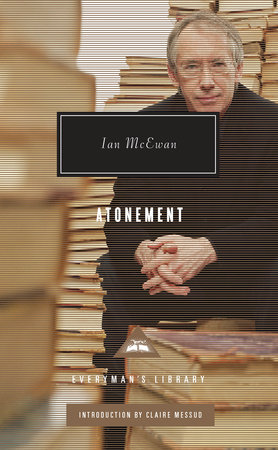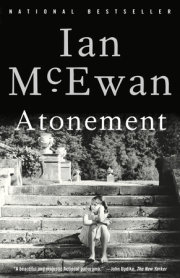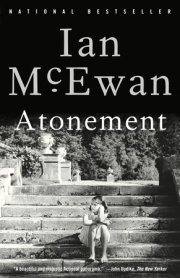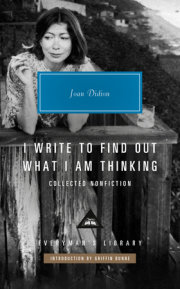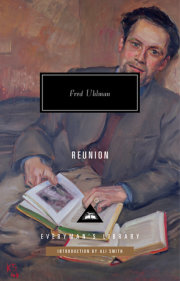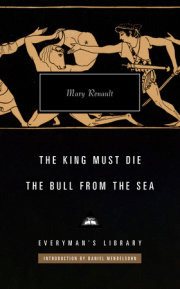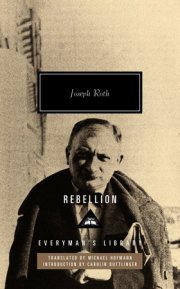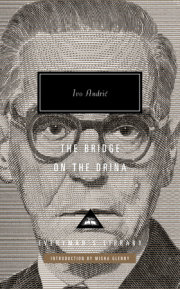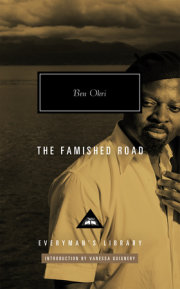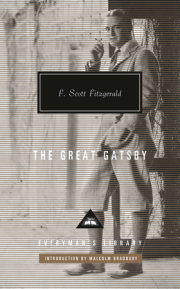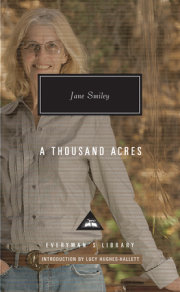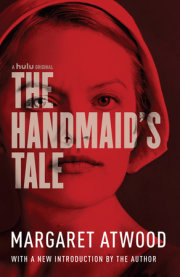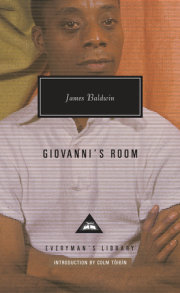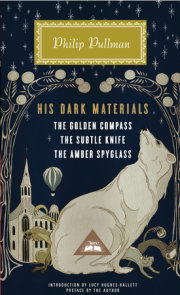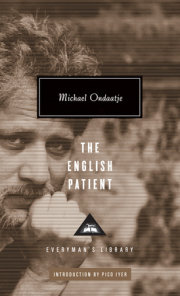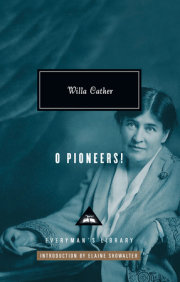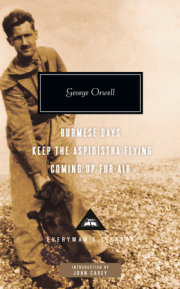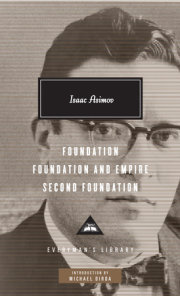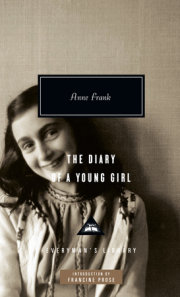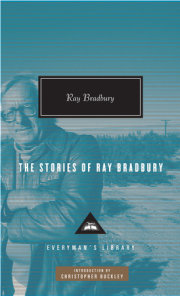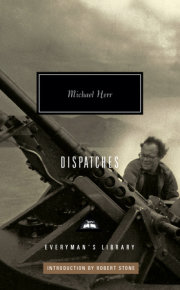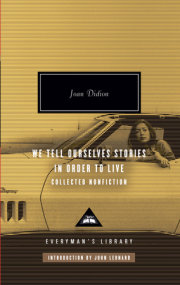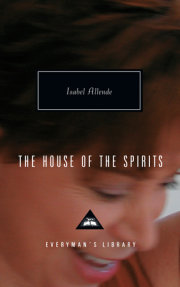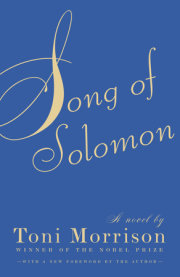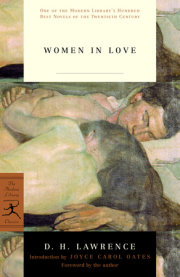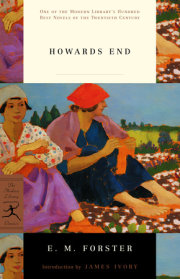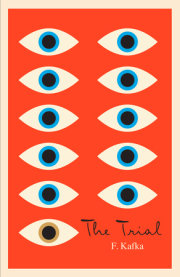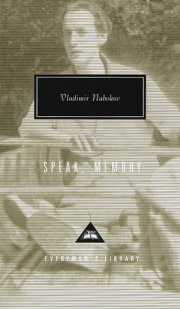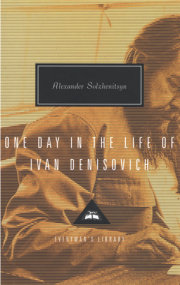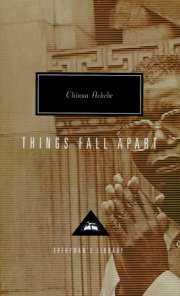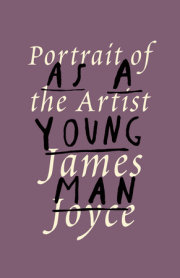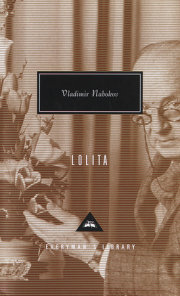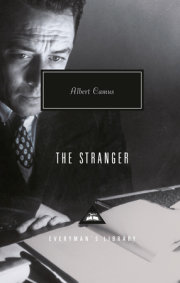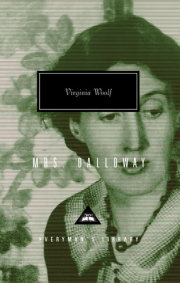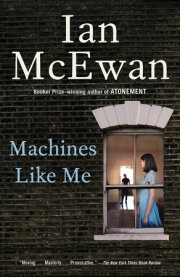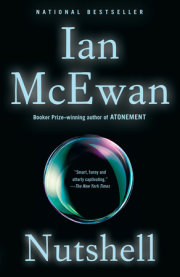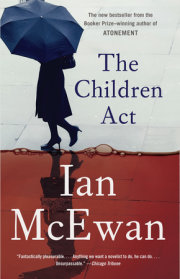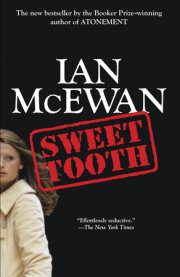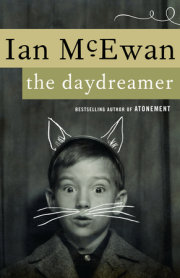Excerpted from the Introduction. Please note the Introduction contains spoilers. First-time readers are advised to read the introduction after
the novel.I N T R O D U C T I O NFiction is, above all others, the art of artifice: it demands the conjuring, from mere marks on paper, of entire felt worlds, of things and of people, of their spoken exchanges and interior emotions and thoughts. Ideally, it is, paradoxically, the deployment of artifice in the service of truth, aiming to reveal as accurately as possible the profound and complex experience of being human and alive on this planet.
But as both writers and readers are aware, stories have their own logic and needs, too: they must sometimes transcend ‘the bleakest realism’, as Briony Tallis calls it in
Atonement, in order to fulfill some broader truth. A novelist is always engaged in the complex dance between the real and the ideal, manipulating and re-ordering detail into a comprehensible and hopefully meaningful narrative that may be, as George Eliot called it, ‘the nearest thing to life’, but that is emphatically not life itself.
From the opening pages of Ian McEwan’s masterful 2001 novel, Briony Tallis – just thirteen in the book’s first section, set in 1935 – reflects upon these mysteries. Frustrated with her first play,
The Trials of Arabella – of which we are privy to some splendidly mawkish lines – she contemplates returning to her first passion, the story: ‘a story,’ she decides, ‘was a form of telepathy. By means of inking symbols onto a page, she was able to send thoughts and feelings from her mind to her reader’s. It was a magical process, so commonplace that no one stopped to wonder at it.’ She goes further, with a childish presumptuousness that would cause consternation among semioticians: ‘Reading a sentence and understanding it were the same thing; as with the crooking of a finger, nothing lay between them. There was no gap during which the symbols were unraveled . . .’
This faith in the telepathic transparency of language will prove both Briony’s undoing and her power.
Atonement stands in contradiction to Auden’s famous assertion that ‘poetry makes nothing happen’: if anything, the conviction of Briony’s storytelling makes too much happen; even as it will prove ultimately incapable of altering reality. At McEwan’s hands, Auden’s line might be rephrased, more accurately, as ‘poetry both does and doesn’t make things happen’.
Certainly, this novel makes its readers feel intensely. McEwan’s literary gifts are lavish, as great as those of any writer alive today, and there is something apparently almost cavalier about his deployment of them. He can create for us a vision of a summer’s evening:
In the early evening, high-altitude clouds in the western sky formed a thin yellow wash which became richer over the hour, and then thickened until a filtered orange glow hung about the giant crests of parkland trees; the leaves became nutty brown, the branches glimpsed among the foliage oily black, and the desiccated grasses took on the colours of the sky.With equal intensity, he can summon roast potatoes so vivid we can practically taste them:
Cecilia moved round behind Betty to see what everyone else could see – a huge blackened tray recently pulled from the oven bearing a quantity of roast potatoes that still sizzled mildly. There were perhaps a hundred in all, in ragged rows of pale gold down which Betty’s metal spatula dug and scraped and turned. The undersides held a stickier yellow glow, and here and there a gleaming edge was picked out in nacreous brown, and the occasional filigree lacework that blossomed around a ruptured skin. They were, or would be, perfect.Or again, in a wholly different register, he can bring us to scenes less familiar, and intensely less comfortable, such as the chaos of the British retreat to Dunkirk, early in the Second World War:
After minutes of noisy crunching over glass, there was sudden silence under their boots where the road ended in fine sand. As they rose through a gap in the dunes, they heard the sea and tasted a salty mouthful before they saw it. The taste of holidays . . . But the actual beach . . . was no more than a variation on all that had gone before . . . He saw thousands of men, ten, twenty thousand, perhaps more, spread across the vastness of the beach. In the distance they were like grains of black sand. But there were no boats, apart from one upturned whaler rolling in the distant surf. It was low tide and almost a mile to the water’s edge. There were no boats by the long jetty. He blinked and looked again. That jetty was made of men, a long file of them, six or eight deep, standing up to their knees, their waists, their shoulders, stretching out for five hundred yards through the shallow waters.This, of course, is the least of the horrors of war that McEwan’s characters – and hence his readers, too – must encounter. To relive these surreal scenes is, in its way, a generalized act of atonement, a bearing witness and a recollection of what, in its details, war actually is. As Robbie Turner, the soldier through whose eyes we experience the retreat, reflects, ‘Who could ever describe this confusion, and come up with the village names and the dates for the history books? And take the reasonable view and begin to assign the blame? No one would ever know what it was like to be here. Without the details there could be no larger picture.’
Of course, ironically, at sixty (now seventy) years’ remove, the Second World War is for most of us reduced precisely to names and dates, to some version of ‘the reasonable view’. It falls to the novelist to bring it fully back to life, to restore, for his readers, the fleeting moment of hope when the soldiers reached the beach, each at the end of his own long and terrifying flight from the battlefield – the soundlessness of the sand, the salt smell of the air, ‘The taste of holidays’ – only to find (as it first appeared) that there was no hope there.
****
Complicatedly, this novel is both itself, and a novel about itself. Like a snake eating its tail, the narrative proves a moebius strip from which there’s no clear escape. We’re reading the lush and glorious prose of Ian McEwan, of course; but we’re also reading the prose of one of his protagonists, Briony Tallis, the young aspiring writer in 1935 who, by the novel’s conclusion in 1999, is revealed to be not only an accomplished novelist now grown old, but more specifically the writer of this book. Her reasons for the writing are intricate and painful, and should be left to the reader to discover. But the revelation of her authorship will prompt many to return to the novel’s opening, to question the seemingly insouciant lyricism of its most richly evocative passages, and to analyse McEwan’s, and Briony Tallis’s, choices at every turn.
For, as Briony Tallis acknowledges, there is grave responsibility in reconstructing a version of what was. The novel she is writing, the novel in our hands, has required meticulous research – including correspondence with soldiers who were at the scene (‘ ‘‘You have your RAF chappie wearing a beret. I really don’t think so. Outside the Tank Corps, even the army didn’t have them in 1940. I think you’d better give the man a forage cap.’’ ’) – and the melding and reconfiguring of actual events (‘I worked in three hospitals in the duration ... and I merged them in my description to concentrate all my experiences in one place’). This is precisely an example of a writer’s falsification in the service of truth. But perhaps, Briony Tallis would contend, perhaps sometimes, the novel can serve another, still greater kind of truth, a type of justice. Perhaps – and there is surely inherent blasphemy in the very suggestion – a novel can provide some form of redemption.
****
Atonement is divided into four sections, beginning in 1935 and ending in 1999. The opening section, by far the novel’s longest, is set in a country house in the south of England, at a time when the prospect of war is bruited but still seems a faint and dreamlike possibility. In these chapters, in which we are granted access not merely to the thoughts but also to the fantasies of the future of many of the central characters, McEwan’s dance between the real and the imaginary is particularly lively.
The story at hand is that of an ultimately disastrous house party in the summer of 1935. The hosts are the Tallis family: Leon, the eldest, home from London; Cecilia, a recent Cambridge graduate; and young Briony, all in the company of their mother, Emily, a largely absent but fond matriarch who is prone to migraines. They are entertaining their cousins – fifteen-year-old Lola, and nine-year-old twins Pierrot and Jackson Quincey – whose parents are in the process of divorcing; along with a friend of Leon’s, Paul Marshall, heir to a vast fortune in the confectionary business. Also present, and centrally important, is Robbie Turner, the son of the Tallises’ cleaning lady, a brilliant young man also recently down from Cambridge who, thanks to the largesse of Jack Tallis, Emily’s husband, is contemplating medical school.
There is much literary nuance in the assembling of this company: the time-honored structure of the country-house gathering affords, like a stage-play, rich possibilities for misapprehension and deceit. Different configurations of characters – diverse in age and social class, as well as temperament – will gather and disperse in various rooms or locales around the property; scenes are witnessed, conversations partially overheard, and significant notes exchanged. Upon occasion, plays are performed – although in this case, Briony’s play is halfheartedly rehearsed, then abandoned. These are deliciously familiar tropes. Think of the oeuvre of Jane Austen, whose
Northanger Abbey provides
Atonement’s epigraph; or of
Brideshead Revisited, and of the novels of Anthony Powell; and again of Jean Renoir’s film
The Rules of the Game. Or more recently, of Edward St. Aubyn’s quintet of Patrick Melrose novels, in which house-parties of various kinds underpin much of the social interaction. The signifiers are familiar; but their significance is not fixed.
In this case, McEwan both satisfies our expectations – here, for example, is the grand manor in its cultivated yet rustic setting, surrounded by parkland, follies and fountains and ha-has, bounded by woods – and simultaneously undermines them: the house itself is a fake latecomer, a Victorian horror, a ‘bright orange brick, squat, lead-paned baronial Gothic, to be condemned one day in an article by Pevsner, or one of his team, as a tragedy of wasted chances, and by a younger writer of the modern school as ‘‘charmless to a fault’’ ’, erected on the site of an ‘Adam-style house . . . destroyed by fire in the late 1880s’.
Like their house, the Tallises, in spite of their apparent grandeur, are false, a mere generation removed from humble origins: ‘Cecilia’s grandfather . . . grew up over an ironmonger’s shop and made the family fortune with a series of patents on padlocks, bolts, latches and hasps.’ The family isn’t so far, it transpires, from their father’s protégé, the aspirant, industrious and brainy Robbie Turner, who, in this particular moment of possibility, is caught halfway in his move up the social ranks: his mother polishes the silver at the big house, it’s true; but he will attend the dinner party as a guest. There is something narratively perfect – almost purely novelistic – about Robbie: his are the perfect characteristics for a novel’s hero.
Then, too, there are the Quincey cousins: although they, like the Tallises, are blessed with an august and profoundly English-sounding surname – the one evoking the great essayist; the other the still greater composer – the children have been given theatrical, almost (and in one case, actually) clownish first names – Lola, Pierrot, and Jackson – as if, one might say, they were fictional characters. Their names call us, as readers, to interpretation – which is, of course, what fictional characters do.
If the slightly heightened contrasts of the Tallis household do not alert us to the complexities of their story-ness, young Briony’s ruminations will: McEwan captures brilliantly the combination of earnestness, grandiosity and fecklessness of a half-formed mind in pursuit of its artistic greatness. The novel’s first section tells of the crisis that will shape the Tallis family henceforth; but it also tells of the crisis of literary faith that will turn Briony into a novelist. Abandoning childish topics – ‘for her now it could no longer be fairy-tale castles and princesses’ – Briony comes to see her literary task as almost God-like:
She could write the scene three times over, from three points of view . . . None of these three was bad, nor were they particularly good. She need not judge. There did not have to be a moral. She need only show separate minds, as alive as her own, struggling with the idea that other minds were equally alive. It wasn’t only wickedness and scheming that made people unhappy, it was confusion and misunderstanding; above all. it was the failure to grasp the simple truth that other people are as real as you. And only in a story could you enter these different minds and show how they had an equal value. That was the only moral a story need have.From this, we might infer that McEwan’s aim is simply to replicate Briony’s mission, to make us equally aware of the workings of various characters in the Tallis family circle. And indeed, this mission – Chekhovian, in its essence: it was Chekhov who famously wrote, of horse thieves, ‘Let the jury judge them; it’s my job simply to show what sort of people they are’ – would be largely sufficient for a work of art. But through the careful structuring of the remainder of the novel, we come to realize that McEwan has more at stake.
****
The second and third sections of the novel take place in the summer of 1940. These sections, like the novel’s first, are written in a close third person, enabling us to slip seamlessly from external observation to internal monologue and back again. In the first instance, we accompany Robbie Turner, now a private in the army, on his retreat through northern France to the beach at Dunkirk, where the British troops have massed in the hopes of a rescue by sea. These are a brutal, intensely vivid, eighty pages, in which we are spared nothing of the surreal sights and horrors of war, nor its black comedy. At one point, Robbie tries to save a woman and her child, only to see the spot where they were standing vaporized, and a smoking crater in their stead. At another, Robbie and his mate Nettle are forced to chase a wayward sow through the streets of a town for an old woman, in return for which they receive some food. How could these events be part of the same story? The implausible disjunctions aren’t lost on Robbie:
Periodically, something slipped. Some everyday principle of continuity, the humdrum element that told him where he was in his own story, faded from his use, abandoning him to a waking dream in which there were thoughts, but no sense of who was having them.
This section, like the first, has its antecedents. While it echoes a very different genre – the war narrative is a far cry from the house-party romp – Robbie’s account is similarly engaged both with an actual (potential) reality and with a body of fiction. The difference is, of course, that most war narratives – from Remarque’s
All Quiet on the Western Front to Joseph Heller’s
Catch 22 to Tim O’Brien’s
The Things They Carried – are written by writers who have witnessed war as soldiers. Neither Ian McEwan nor Briony Tallis falls into this category of writer: there is something bold, brazenly theatrical, even challenging, about writing a character’s experience that includes the thought, ‘No one would ever know what it was like to be here’ – conceived, elaborated, and written by a writer (either fictional or actual) who was not himself or herself actually there.
The case for the power of fiction – the frank countering of Auden’s ‘poetry makes nothing happen’ – is made in these second and third sections of the novel. In the third, we accompany Briony, now eighteen, in her nurse’s training, as we have accompanied Robbie in his long march. Here again, we are overwhelmed with agonizing detail – ‘Everywhere, a soup of smells – the sticky sour odour of fresh blood, and also filthy clothes, sweat, oil, disinfectant, medical alcohol, and drifting above it all, the stink of gangrene’ – and with a nurse’s intimacies with the injured and dying. McEwan’s extraordinary linguistic facility is, in these sections, turned not to beautiful sunsets or fine meals, but to the mash and mire of ruined bodies and minds, struggling for survival. These, too, are familiars, far less enchanting than those with which the novel opens; and juxtaposed, as they are, with what has come before, or with Briony’s walk in the sunlit park on her day off, they are jarringly unfamiliar, too.
In the third section, moreover, McEwan resumes the interweaving of the Tallis family’s story – Robbie and Cecilia’s story, if you prefer – with Briony’s literary trajectory. Even as she trains to become a nurse, Briony is pursuing her career as a novelist. She receives a letter from Cyril Connolly, editor of the magazine Horizon, responding to her submission – of an early draft of this very fiction. She reflects on the nature of the contemporary novel: ‘A modern novelist could no more write characters and plots than a modern composer could a Mozart symphony. It was thought, perception, sensations that interested her, the conscious mind as a river through time . . .’
Of course, McEwan’s novel – or Briony’s – is comprised in no small part of the movement of its characters’ thoughts. But there is a commentary upon Briony’s literary vision in the form of
Atonement itself: McEwan’s character embraces modernism, intellectually, while McEwan comments upon that embrace in the shape and nature of his novel.
Atonement is a novel fundamentally ordered by character and by plot, formally disrupted by modernism but discernibly linked to the fully indulged artifice of nineteenth-century realist fiction. Just as McEwan’s pastiche of war narrative provides both a re-enactment and a re-evaluation of such narratives, so too he is both dancing with his literary forebears and dancing around them at the same time. What is at stake, ultimately, is not simply the convincing ‘reality’ of his characters, but the ethical and aesthetic complications of the literary enterprise itself.
None of this would matter, of course, if
Atonement were a dry, didactic or unrealized work. But McEwan’s magical conjuring powers are strong enough, by a long chalk, to free him to make ironic comment upon the artifice of such conjuring powers without fear of failing. We may be winking about the con, but we do so even as we’re eagerly and willingly being conned.
That the elaborate, consuming and self-knowing trickery that is a novel, that is this novel, might be a potentially moral or even redemptive act – for the reader as much as for the writer – is a profound question indeed. Briony, who has staked her life on the idea of fiction-as-redemption, fiction-as-atonement, certainly seems to know the answer to that question. Wily to the end, Ian McEwan, the book’s true author, who is crucially different from Briony, does not quite reveal his answer to her anguished question: God-like, all-knowing, he keeps it hidden.
—Claire Messud
Copyright © 2002 by Claire Messud. All rights reserved. No part of this excerpt may be reproduced or reprinted without permission in writing from the publisher.

